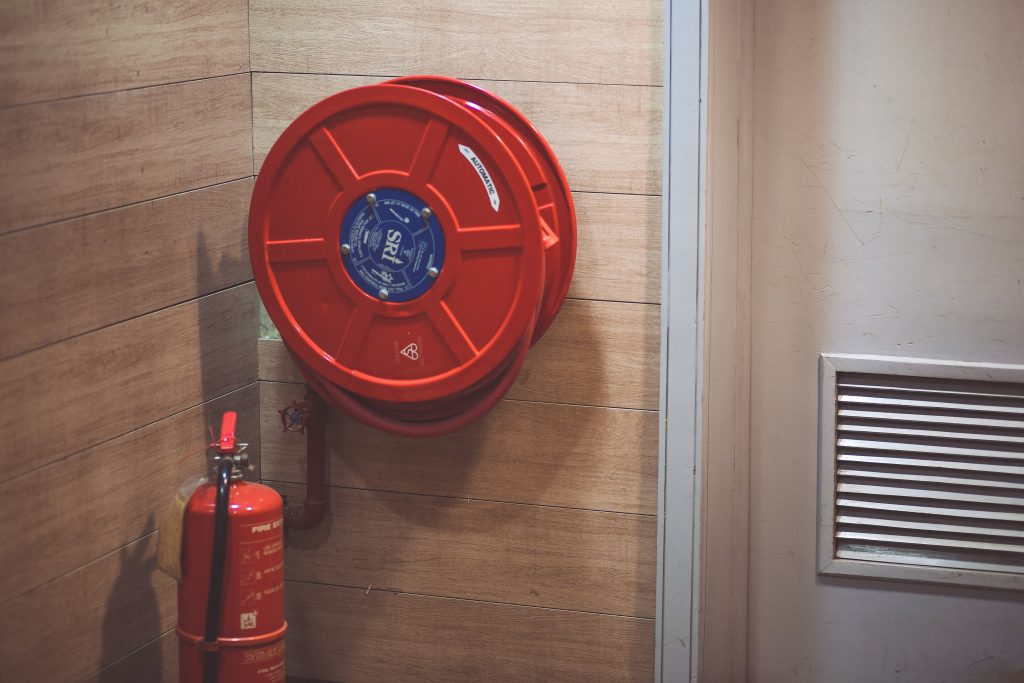Bangladesh is moving towards a middle-income nation. The economy will reach 1 trillion by 2040, according to forecasts by the US Boston Consulting Group and HSBC Global Research. With the development of the economy, safety and compliance measures cannot be avoided for businesses and residential properties.
Many residential and industrial buildings are not updated with the safety requirements and compliances. According to data compiled by fire officials, a comprehensive assessment of 5,869 different establishments and buildings, including government structures, has categorized 10% of these premises as ‘very high risk,’ while 27% fall into the ‘risky’ category. This assessment provides a clear snapshot of the current state of fire safety across these inspected locations. More than 24,000 fire incidents have occurred in 2022, and 98 people died, including 13 firefighters, according to data from Bangladesh Fire Service and Civil Defense.
Safety compliance is an integrated part of capital expenditure, which is important for business outcomes. It involves taking care of human resources and the assets for business revenue. After any fire incident or structural failure, human tolls impact many families’ earning ability and damage the revenue-generating structure. In many cases in Bangladesh, business houses and factories shut down permanently or stay closed for a long time after a fire disaster. So, the whole business is impacted without this small investment in compliance and required training.

On the other hand, insurance companies provide financial protection against losses or damages caused by fire if the property owner purchases the insurance policy. Under this circumstance, the property owner can only buy the insurance policy if a fire protection system protects the building.
Electric short circuits emerged as the primary reason (38%) for fire incidents, whereas fires caused by discarded lit cigarette butts contributed to 16% of the overall cases. Burners, accounting for the third most significant cause of fire incidents, contribute to 14% of the occurrences. Manufacturing plants, offices, and residential appliances mainly depend on electrical energy. It is essential to assess the required load from machineries and all appliances up to a certain period, including any future expansion.
Possessing an accurate electrical diagram is essential, and it should be regularly updated to reflect any changes when incorporating new loads into the existing system. The cable selection, installation, and placement process must adhere to both the local code BNBC and the international code NFPA.
Ensuring the availability of an automatic fire extinguishing system, like sprinklers, or a manual fire extinguishing system, such as a high-pressure fire hose system, is vital to suppress fires right from their start. As the fire spreads and creates hot smoke layers, stopping it becomes increasingly difficult and vulnerable to the fire response team.
Installing a Fire alarm system is necessary to alert people when a fire incident occurs. The fire alarm system is sometimes triggered automatically due to excessive dust and water vapor. This results from inadequate maintenance. As a result of these false alarm situations, individuals evacuate manufacturing floors or offices, leading to reduced work hours and eroding trust in the reliability of the fire alarm system.
After experiencing several disastrous fire incidents at locations such as Tazreen Fashions, FR Tower in Banani, Hashem Food factory, Chawkbazar chemical warehouse, Nimtali chemical warehouse, Container depot in Sitakunda and Bangabazar, the demand for fire safety equipment has escalated, along with increased concerns about compliance.
Bangladesh Fire Service and Civil Defense made the mandatory requirement of a Fire Safety Plan, which they must approve for any high-rise new construction. This safety plan requires adequate road space for fire truck movement, a dedicated water tank for the fire pump, a high-pressure pump, hose connections, and a piping arrangement that can provide an instant high-pressure water supply to suppress fire. A fire alarm system is also mandatory to notify occupants during fire incidents, and evacuation is necessary. These approval requirements have created significant market demand, and more than 100 companies are now serving this demand. However, the lack of professionalism is still a concern for the end user.
The annual market size has exceeded 22 billion USD with a Compound Annual Growth Rate (CAGR) of 8% in Asia. If we consider the 1% market size in Bangladesh, it could amount to 220 million USD, which is half of the projected unofficial estimates, claimed a report by a local daily, The Business Post.
However, this market demand is mostly met by importing materials from fire protection system manufacturers in different countries, especially China, India, UAE, Europe, and the USA. Notably, even manufacturers of global reputation procure original equipment manufacturer (OEM) brands from Chinese and Indian manufacturers, particularly for iron sheet-related products.
Two large business groups in Bangladesh have already started the production of fire doors on par with international standards, such as Underwriters Laboratories (UL). Many fire hydrant systems — used to suppress fires with water — such as MS pipes, can be purchased from local pipe manufacturers. However, local manufacturers are facing challenges with high production costs, raw material sourcing, and maintaining international standards compared to other global manufacturers.
As our economy continues to grow, ensuring safety compliance becomes essential for safeguarding the well-being of our workforce and protecting valuable assets. Modernization of safety compliances will lead to secure workplaces, enabling us to prioritize the safety of every individual.
Shayful Islam Mamun is Managing Director at Banmech Limited. Contact him at: shayful.islam@banmech.com